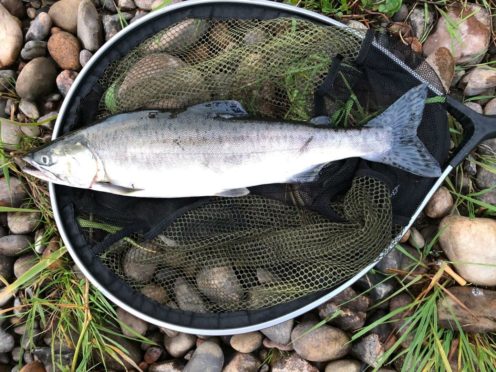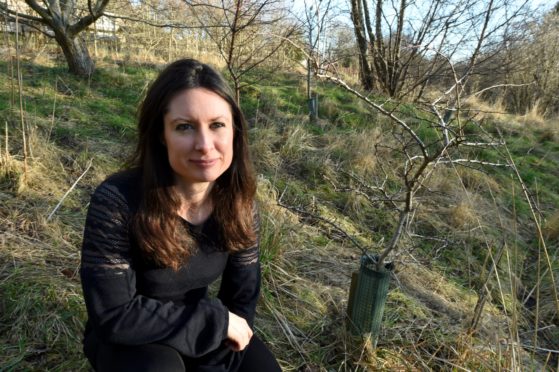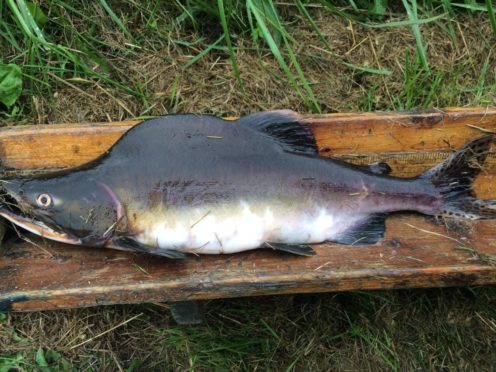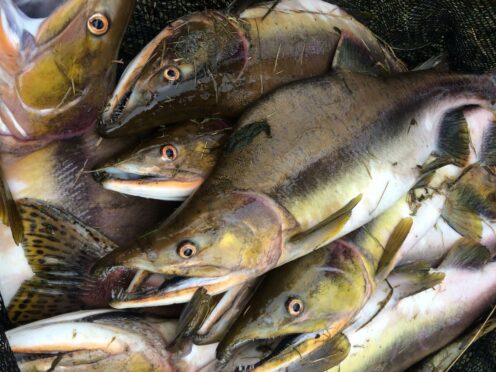Anglers across the north-east are on alert after an invasive species of salmon has been identified in Aberdeen’s two main rivers.
So far this fishing season, two Pacific pink salmon have been caught in the River Dee and another two caught in the River Don.
A further three were netted in the Spey near Elgin, and three more of the invasive fish were caught as far north as Thurso.
Unprecedented numbers
As the name suggests, pink salmon are native to Pacific Ocean waters but have spread to parts of northern Europe after being released into rivers in Russia in the 1960s.
In 2017, a large number of pink salmon were recorded in Scottish rivers, and, again, an unusually high number of the species were recorded two years later in 2019.
This pattern is due to the two-year life cycle of the fish and conservationists were already anticipating a resurgence of reports this year as a result.
It seems that these predictions have been correct, with a total of 20 Pacific pink salmon netted so far across Scotland this summer.
“Our biggest concern is that they may carry diseases that they are able to cope with bu our native salmon aren’t,” said Lorraine Hawkins, director of the River Dee Trust and Dee District Salmon Fishery Board.
“We’ve all seen that happen time and time again in different countries where introduced species bring in diseases which just wipe out the native species. So that’s our big concern.”
The other big unknown is if the growing presence of these invasive salmon will begin to out-compete native salmon populations.
“Our native Atlantic salmon are in a really perilous state at the moment, with population declines over the last 50 or 60 years, so we don’t want another pressure that could negatively affect them,” Ms Hawkins said.
What can anglers do?
Since the salmon fishing season began earlier this year, anglers have been asked to report any catches or sightings of the invasive fish.
Local river trusts wanted to be prepared and will be using the data collected this year to inform their plans for the future health of Scotland’s rivers.
“They really took us by surprise in 2017,” said Ms Hawkins, “that was the first year they appeared in any numbers.
“But because they appeared in 2017 we knew to possibly expect to look out for them in 2019 and 2021 – basically every odd year – so we did brief anglers at the start of the summer to be on their guard.”
Any Pacific pink salmon which are caught are removed from the water and safely killed by the angler. Ms Hawkins explains that because the species is invasive and non-native, laws dictate that it would be illegal for the fish to be returned to the water.
“Once they’ve captured and killed the salmon, they have to contact the local fishery board and they report it to us,” she said.
“We are going around and collecting carcasses which will be used for a national study looking at where these pink salmon have derived from, to possibly determine how they got here.”
Scottish salmon in decline
Typically anglers may be catching Scottish salmon as late as October, so the number of reported pink salmon is likely to keep rising over the months to come.
However the next four weeks are expected to be the peak, and Ms Hawkins is keen to reiterate that anglers must stay alert.
“Looking at the previous years where we’ve encountered pink salmon, July and August were the peak time and it looks like the pink salmon were spawning in the river in the middle of August,” she said. “And after that they disappear, dying after spawning.”
Though less experienced fishermen and members of the public may not be familiar with the potential dangers this species may pose, it’s worth pointing out that even the experts aren’t sure what the future might hold.
“The concerns are not obvious necessarily, but we do know that generally when animals are introduced somewhere they often have unexpected effects,” said Ms Hawkins.
“And you don’t know what you don’t know. With the decline that we’ve seen in our native salmon, we really just fear for anything which could add to the problems they already face.”
You may also be interested in:



